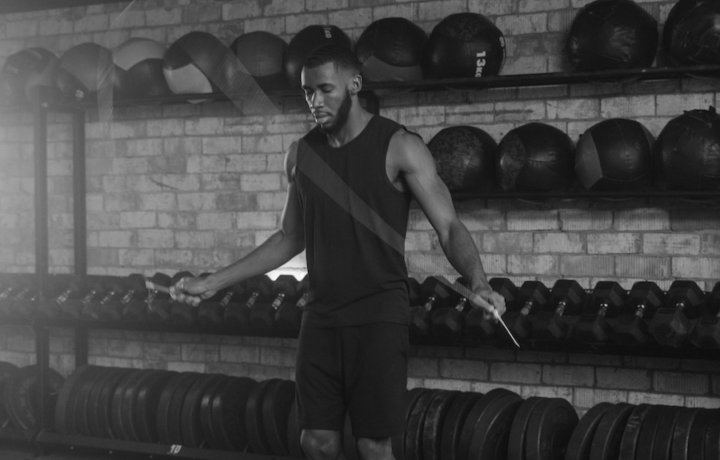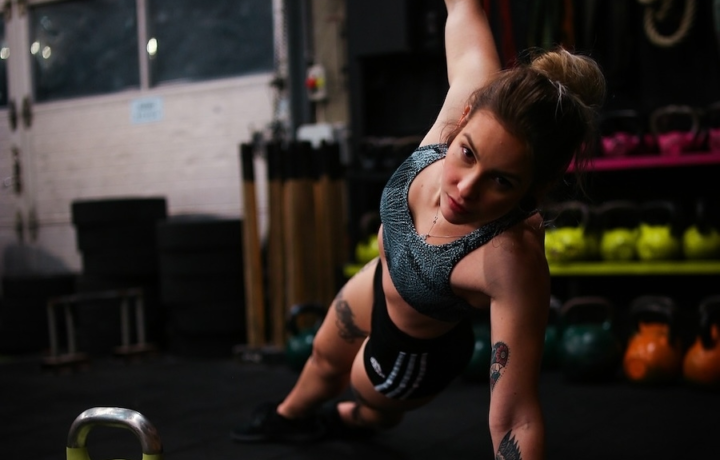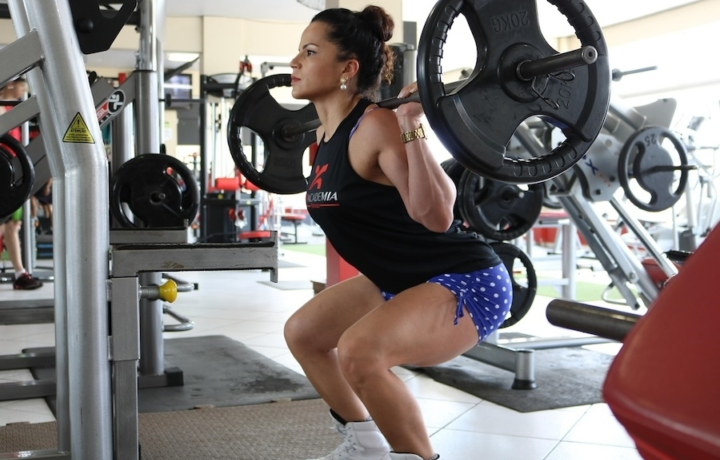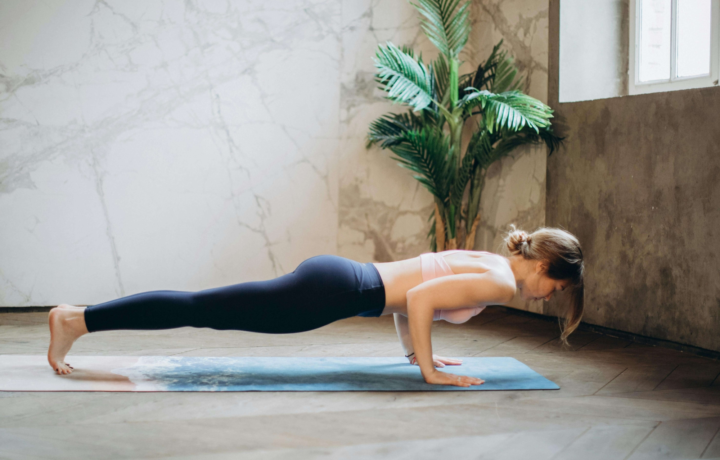For definition, balance and functional movement
Ab exercises
The abdominal muscles are more than just aesthetics: they’re essential for posture, movement, and total-body stability. Strengthening your abs supports athletic performance, prevents injuries, and enhances control in nearly every exercise. This overview highlights the most effective ab exercises, including variations for the lower abs, and explores how you can train your core with or without equipment.
Focus on
Pick your equipment
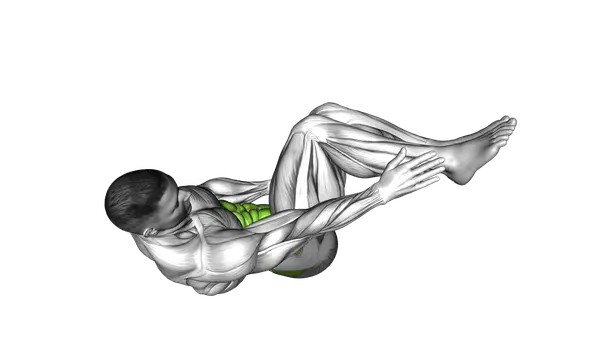
90 Degree Alternate Heel Touch
The 90 Degree Alternate Heel Touch trains controlled side bending, helping improve core control and coordination through slow, precise movement.
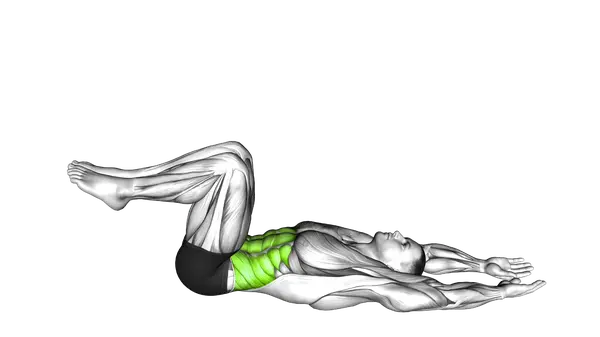
90 Degree Heel Touch
The 90 Degree Heel Touch builds controlled side-to-side core tension, helping improve stability and coordination with simple, steady movement.
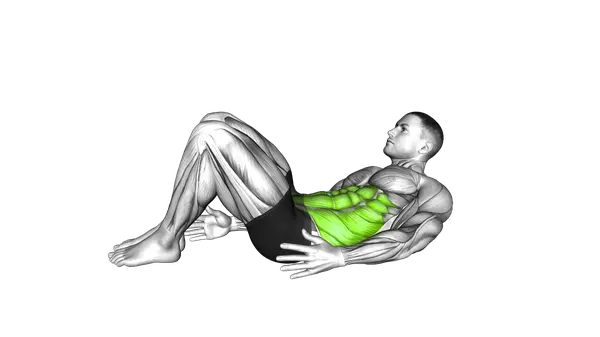
Alternate Heel Touchers
The Alternate Heel Touchers is a simple core exercise that builds control and endurance by using small side-to-side movements under tension.
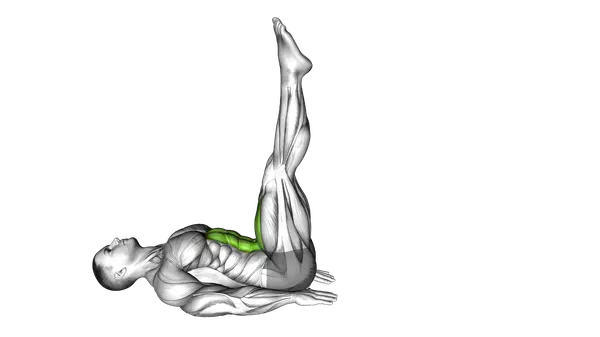
Alternate Leg Raise
The Alternate Leg Raise is a controlled core exercise that builds strength and stability by lifting one leg at a time while staying steady.
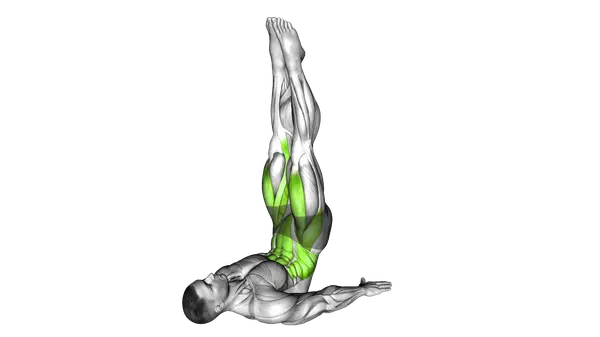
Alternate Lying Floor Leg Raise
The Alternate Lying Floor Leg Raise builds core control by lifting one leg at a time while keeping the lower body stable on the floor.
Built for Progress
Take the Guesswork Out of Training
Create personalized AI-powered workout plans that evolve with you. Train smarter, track every rep and keep moving forward.
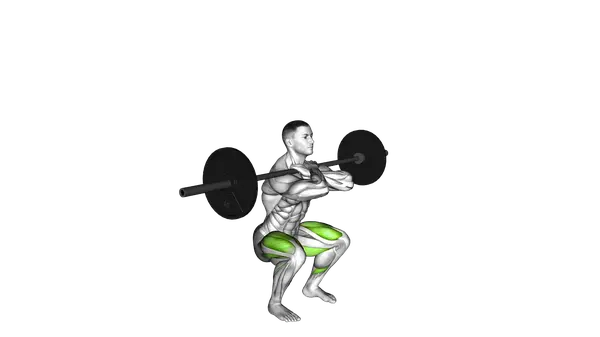
Barbell Front Squat
The Barbell Front Squat is a lower-body strength exercise that builds quad strength while reinforcing an upright, stable squat position.
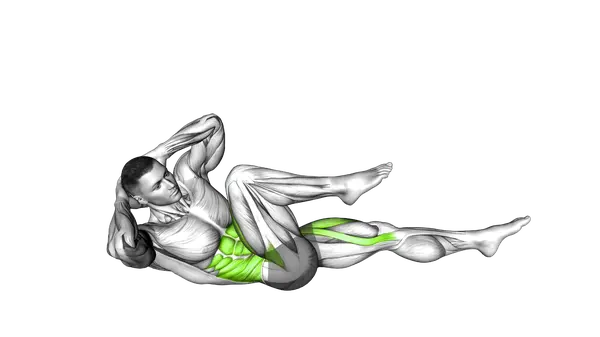
Bicycle Crunch
The Bicycle Crunch is a controlled core exercise that builds strength and coordination by combining rotation with alternating leg movement.
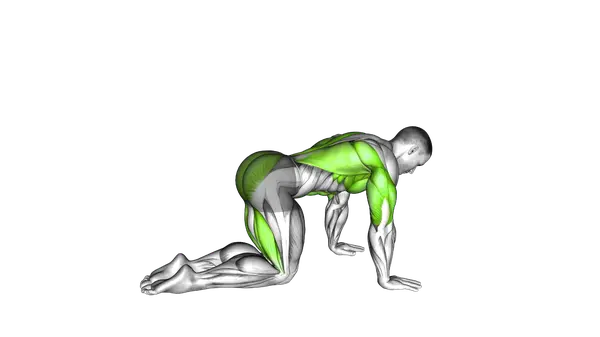
Bird Dog
The Bird Dog is a core stability exercise that improves balance, spinal control, and coordination using slow, controlled movements.

Burpee
The Burpee is a full-body exercise that builds conditioning, strength, and coordination through a fast, continuous movement.

Burpee Box Jump
The Burpee Box Jump combines a burpee with an explosive box jump to build full-body power, coordination, and high-intensity conditioning.

Burpee Broad Jump
The Burpee Broad Jump is a full-body exercise that combines a burpee with a forward jump to build power, conditioning, and total-body strength.
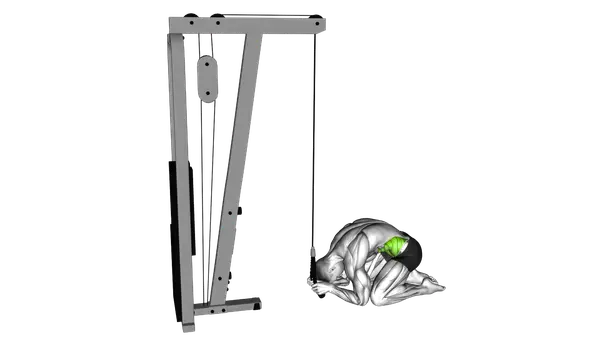
Cable Kneeling Crunch
The Cable Kneeling Crunch is a focused core exercise that uses cable resistance to build strong, controlled abdominal flexion.
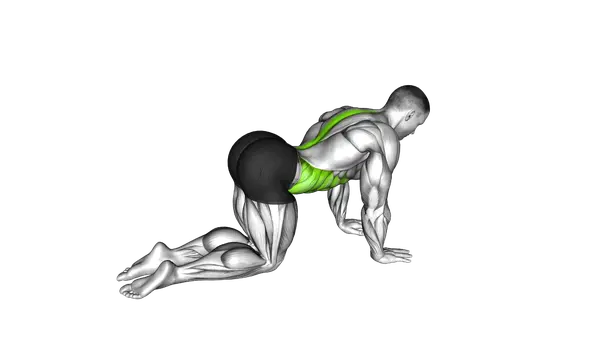
Cat Cow Stretch
The Cat Cow Stretch is a gentle mobility exercise that improves spine movement and helps reduce stiffness in the back and core.
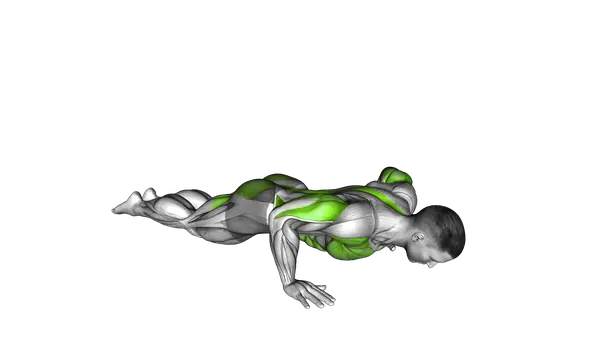
Cobra Yoga Pose
The cobra yoga pose is a gentle backbend that stretches the spine and chest while improving posture, mobility, and core awareness.
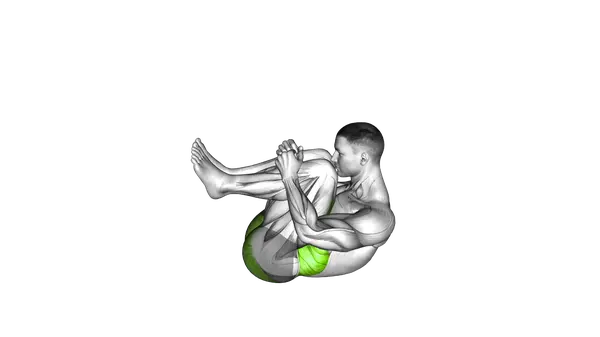
Cocoons
Cocoons challenge your abs through controlled curling and extension, building core strength, stability, and body control.
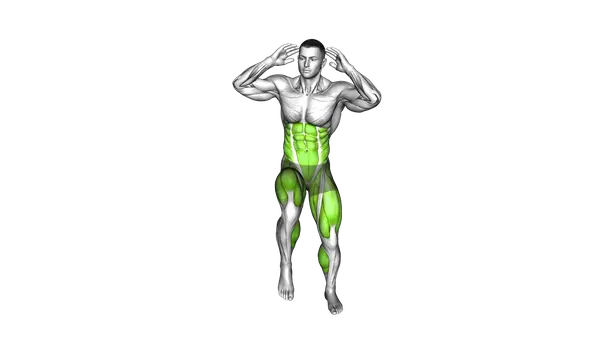
Criss Cross Elbow To Knee
The Criss Cross Elbow to Knee trains your abs through controlled rotation, improving core strength, balance and coordination.
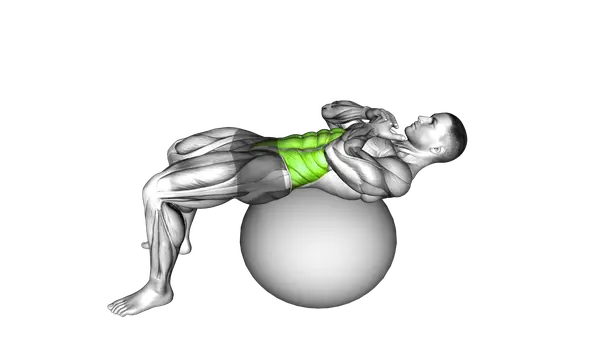
Crunch (On Stability Ball)
The Crunch on Stability Ball builds core strength through controlled flexion while challenging balance and body control.
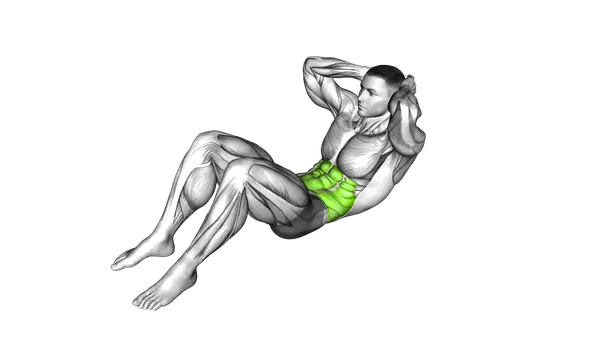
Crunch Floor
The Crunch Floor is a simple bodyweight exercise that strengthens your abs using controlled movement and proper core engagement.
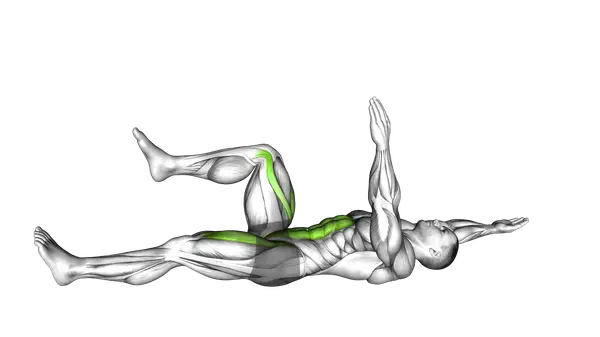
Dead Bug
The Dead Bug is a controlled core exercise that improves stability, coordination, and lower-back control using slow, precise movements.
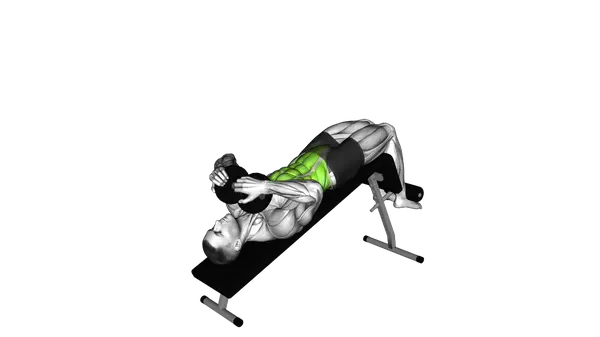
Dumbbell Decline Sit Up
The Dumbbell Decline Sit-Up increases core strength by adding resistance and a steeper angle to the classic sit-up.

Dumbbell Military Press Russian Twist
The Dumbbell Military Press Russian Twist combines an overhead press with controlled rotation to build strength and coordination.
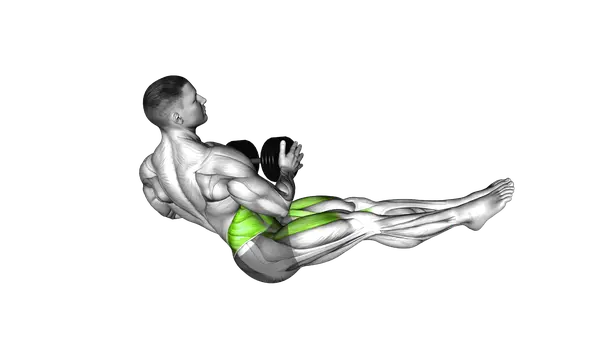
Dumbbell Russian Twist
The Dumbbell Russian Twist is a seated core exercise that trains control and rotation while keeping your balance and posture steady.
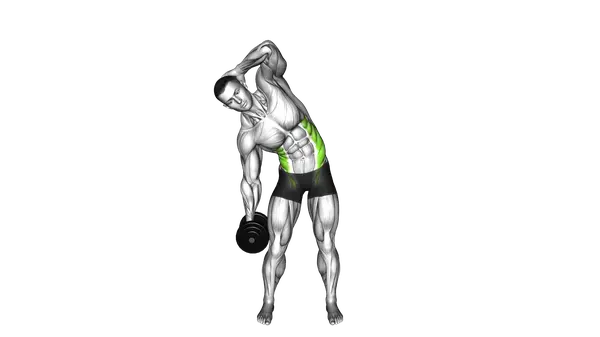
Dumbbell Side Bend
The Dumbbell Side Bend is a simple standing exercise that trains controlled side movement to strengthen the muscles along your waist.
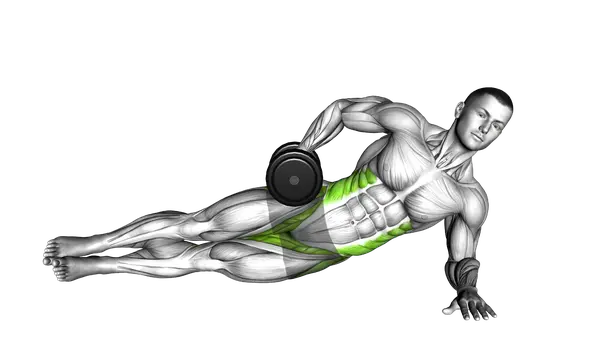
Dumbbell Side Bridge
The Dumbbell Side Bridge is a side plank variation that adds load to improve strength and control through the side of your core.
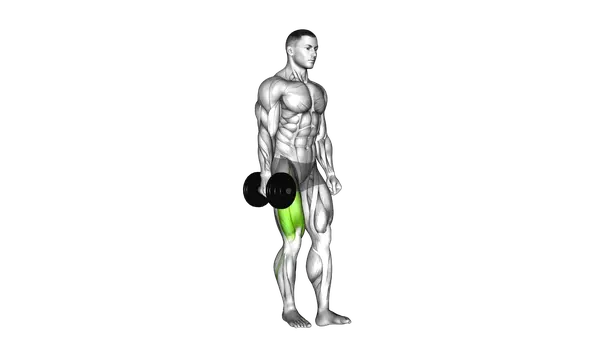
Dumbbell Single Leg Squat
The Dumbbell Single Leg Squat is a unilateral squat exercise that builds leg strength, balance, and control using dumbbells.
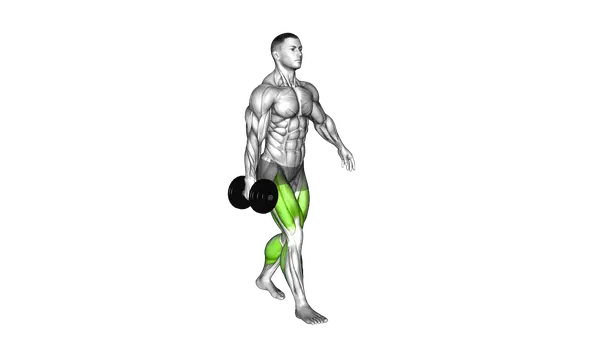
Dumbbell Suitcase Carry
The Dumbbell Suitcase Carry is a simple loaded walk that builds core control and posture by carrying weight on one side.
Improve posture, stability, and movement efficiency
Training goals for ab development
Ab training isn’t just about getting a six-pack. A strong core supports nearly every movement: from lifting and sprinting to balancing and twisting. Well-developed abs protect your lower back, improve posture, and provide the foundation for full-body control. Consistent ab work sharpens your performance across all training goals, including strength, power, and endurance.
Engage the core through dynamic and static movements
Best ab exercises for definition and control
The best ab exercises include a mix of movements that challenge stability, control, and coordination. Planks, crunches, hanging leg raises, cable crunches, mountain climbers, and V-ups each target different parts of the core. To specifically hit the lower abs, focus on reverse crunches, leg raises, and flutter kicks. Combining static holds with controlled movement leads to stronger, more defined abs over time.
Train abs effectively with or without any equipment
Equipment options for ab training
Bodyweight is often all you need for effective ab training. Planks, crunches, and leg raises can be done anywhere. For added resistance, equipment like ab wheels, cable machines, or medicine balls can intensify the workout and increase overload. Resistance bands also allow for more controlled contraction and variation. Whether you’re at home or in the gym, there’s always a way to challenge your core.
Include ab training in full-body sessions or as standalone finishers
Training plans featuring ab exercises
You can train abs 2–4 times per week depending on your routine and goals. Abs recover quickly and respond well to both short, focused finishers and structured core circuits. Include them at the end of your workout or as part of a full-body workouts. The app helps you create a personalized training plan that aligns with your goals: whether that’s building muscle, gaining strength, or improving balance. It also includes the right exercises based on your experience and available equipment.
Frequently asked questions about ab exercises
Ab exercises strengthen and shape the core, but visible abs depend largely on body fat levels. A clean diet and overall training program focused on fat loss are necessary to reveal abdominal definition. That said, strong abs improve posture and performance whether they’re visible or not.
No. Most ab exercises can be done using just your bodyweight. Planks, sit-ups, and leg raises are highly effective without added resistance. Equipment like bands or medicine balls can add variety and intensity but isn’t necessary for results.
Lower abs are best targeted through exercises like reverse crunches, leg raises, flutter kicks, and hanging knee tucks. These movements involve lifting the legs or pelvis while keeping tension in the core. Slower reps and full control improve activation.
Abs can be trained 2–4 times per week. Since they recover quickly, you can include short ab circuits throughout the week or focus on them in 1–2 dedicated sessions. Be sure to vary your exercises and include rest days for optimal results and injury prevention.
The best ab exercises include planks, crunches, hanging leg raises, reverse crunches, and mountain climbers. A well-rounded routine combines static holds and dynamic movement to target the full core. Choosing exercises that challenge both control and endurance helps develop strength and definition.
Integrate ab exercises into full-body and split routines
